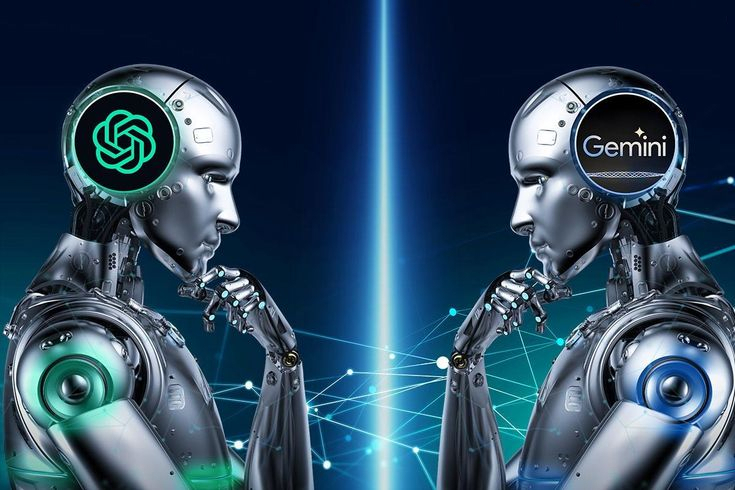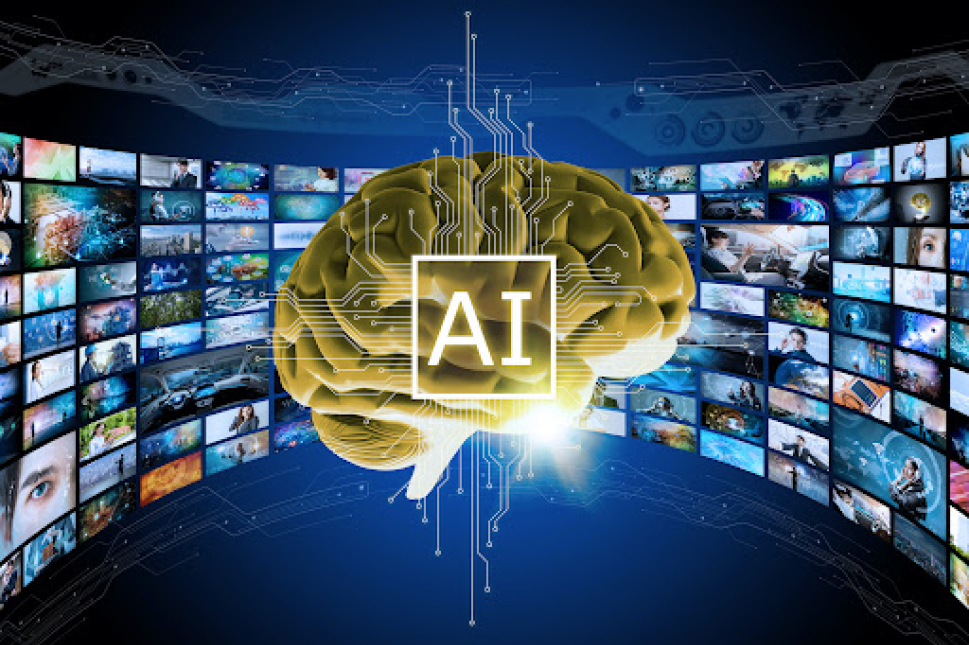Google Gemini and ChatGPT have distinct origins and purposes. Google Gemini is a part of Google’s AI research division, and it focuses on natural language processing and understanding, aiming to enhance various Google services by integrating advanced AI capabilities. On the other hand, ChatGPT is developed by OpenAI, a research organisation dedicated to artificial general intelligence. ChatGPT is a language model designed to generate human-like text responses and facilitate natural language conversations.
First, it’s worth noting that both Gemini and ChatGPT are based on incredibly vast and powerful large language models (LLMs), far more advanced than anything publicly available in the past.
ChatGPT is just the interface through which users communicate with the language model – GPT4 (paying users of ChatGPT Pro) or GPT3.5 (free users).
In Google’s case, the interface is called Gemini (previously Bard), and it’s used to communicate with the language model, which is a separate entity but is also called Gemini (or Gemini Ultra if you’re paying for the Gemini Advanced service).
Something important to take into consideration is that although we call them both chatbots, the intended user experience is slightly different. ChatGPT is designed to enable conversations and help solve problems in a conversational manner – much like chatting with an expert on a subject.
Gemini, on the other hand, seems designed to process information and automate tasks in a way that saves the user time and effort.
One advantage of Gemini is that by default, it considers all of the information at its fingertips – including the internet, Google’s vast knowledge graph, and its training data.
ChatGPT, on the other hand, will often still choose to try and answer a question solely relying on its training data. This can occasionally lead to out-of-date information.
Gemini proves to be slightly more adept than ChatGPT when it comes to online searching and integrating the information it finds into its responses.
When ChatGPT does head online and look for information, its responses tend to lose some of their dynamism. It often seems as if it will answer questions or provide responses based on a single web search and a single source of information rather than conduting a comprehensive analysis of all the information it can access and coming to a conclusion.
ChatGPT 4.0 generates images using the DALL-E model, which was also developed by OpenAI. Gemini, on the other hand, utilises Google’s Imagen 2 engine. Both are clearly very powerful and can generate amazing results.
ChatGPT has a user-friendly interface and a straightforward but paid API, making it easy for beginners to start. Its simple text-based input and output format are readily accessible to many users. While Gemini with its advanced capabilities, may need more technical expertise for complex tasks. The team hasn’t disclosed its interface and API details, but they might involve more complex configurations than ChatGPT.
The main difference between ChatGPT and Gemini is that ChatGPT focuses on text generation and conversation, excelling in creative writing, translation, and engaging in open-ended, informative dialogue, whereas Gemini emphasises multimodality, meaning it can seamlessly handle and generate text, images, audio, and video.
One notable aspect of ChatGPT is its focus on democratizing access to advanced AI capabilities. Through its user-friendly interface and accessible API, individuals with varying levels of technical expertise can leverage the power of language models for a wide range of applications. Whether it’s assisting with customer support, generating content, or simply engaging in casual conversation, ChatGPT offers a straightforward platform for users to interact with AI.
In contrast, Gemini’s advanced capabilities may require a higher level of technical proficiency to fully leverage. While it excels in tasks such as information retrieval and automated processing, its complexity may present a barrier to entry for some users. However, for those with the expertise to harness its full potential, Gemini offers unparalleled capabilities in extracting insights and synthesizing information from diverse sources.
Ultimately, the choice between ChatGPT and Gemini depends on the specific needs and objectives of the user. Whether seeking to enhance customer interactions, streamline workflows, or explore the frontiers of AI research, both platforms represent significant milestones in the evolution of natural language understanding and multimodal AI. As AI continues to advance, the convergence of technologies represented by ChatGPT and Gemini promises to reshape how we interact with information and each other in the digital age.
In summary, ChatGPT and Gemini are both advanced language models, but they serve different purposes. ChatGPT focuses on facilitating natural language conversations and text generation tasks, prioritising user-friendly interfaces and conversational interactions. In contrast, Gemini emphasises multimodality, handling text, images, audio, and video seamlessly, with a focus on processing information efficiently. While ChatGPT excels in open-ended dialogue and creative writing, Gemini leverages its ability to integrate various media types and access extensive datasets for comprehensive responses. Ultimately, the choice between them depends on the specific needs and preferences of the user.
A thorough analysis and comparison of both the services can be found on wired.







